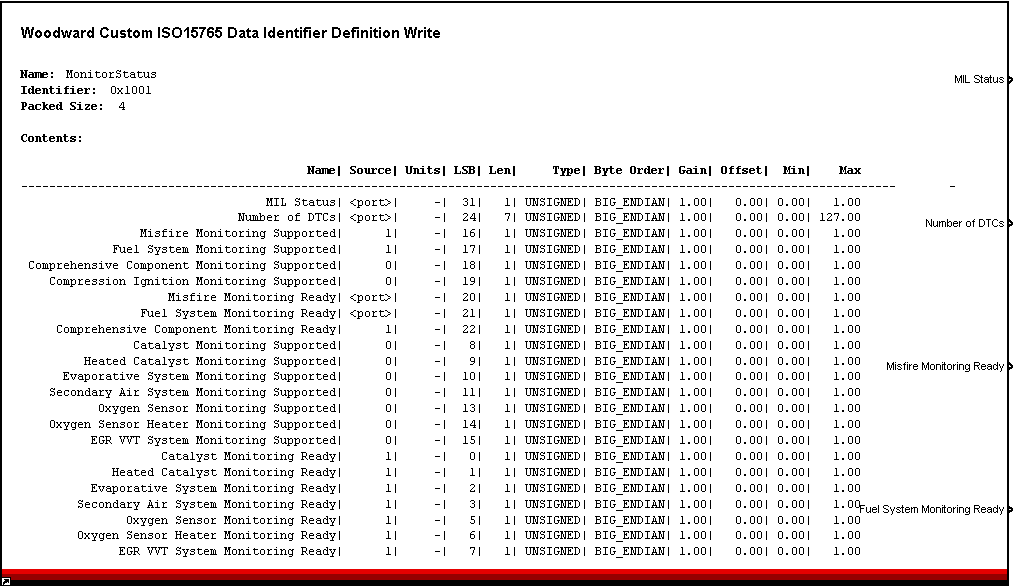ISO15765:Blocks:DID Write
Contents
Woodward Custom ISO15765 DID Write
This block defines a single Data Identifier that will be present in the application and provides write access. It defines the interface (how many ports) and the bit packing for the specified DID.
Block ID
ISO15765 DID Write
Library
Woodward Custom ISO15765
Description
The information present in the DID definition structure informs the code generator how to efficiently pack the bytes when the DID/PID is requested via the ISO15765 protocol.
The proper format of the structure is defined in the "example" DID file (woodward_custom_iso15765_data_identifier_example). The block displays a table with all of the individual fields and the respective properties.
Note that until the ISO15765 protocol receives a request to write to this DID, the output ports of this block will be zero. If the application needs to be informed when the output ports will contain valid values, then this block should be placed in a triggered subsystem which is triggered by the [ISO15765DIDWriteTrigger.html DID Write Trigger] block. The application may choose to reject the values provided over the ISO15765 protocol through the use of the [ISO15765DIDWriteResponseSet.html DID Write Response Set] block.
An optimization of writing direct to data store values is available by specifying the proper name in the "datastore_name" in the DID definition structure for the field. This achieves the same functionality of calibration tool parameter writes with MotoHawk.
Various examples of DID Write block usage can be found in the HelloWorld example model distributed in this release.
See also [ISO15765 DID Read]
Block Parameters
| Parameter Field | Values | Comments/Description |
|---|---|---|
| Name | String | Override the default DID/PID name with this parameter |
| DID Definition | Expression | The DID Definition m script for this block. It must evaluate to a structure as is specified in the DID example file. |
